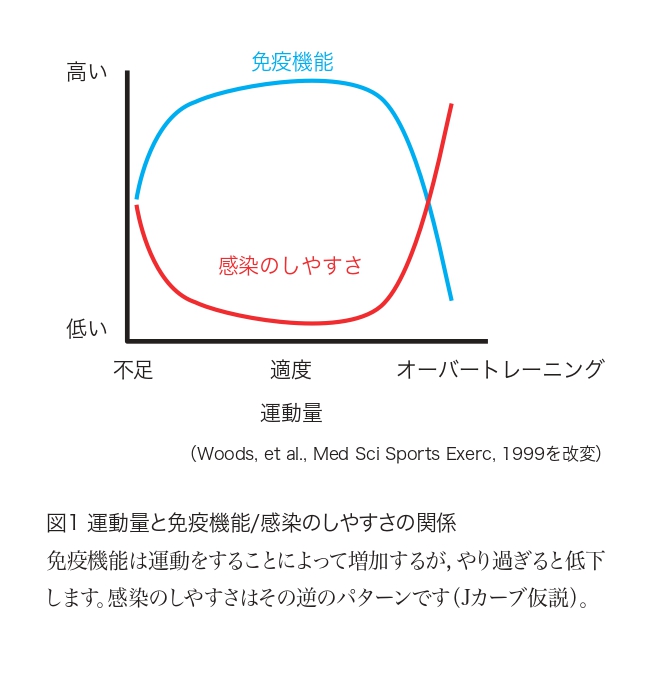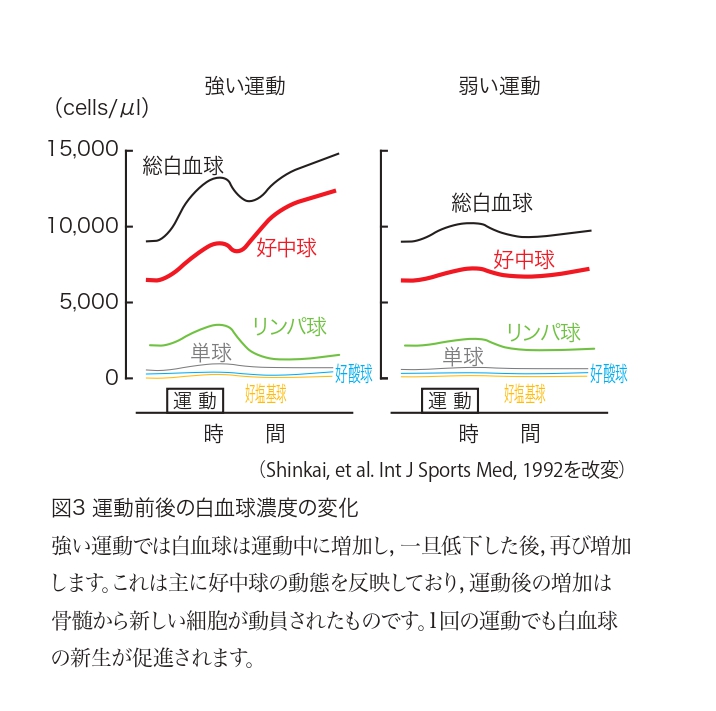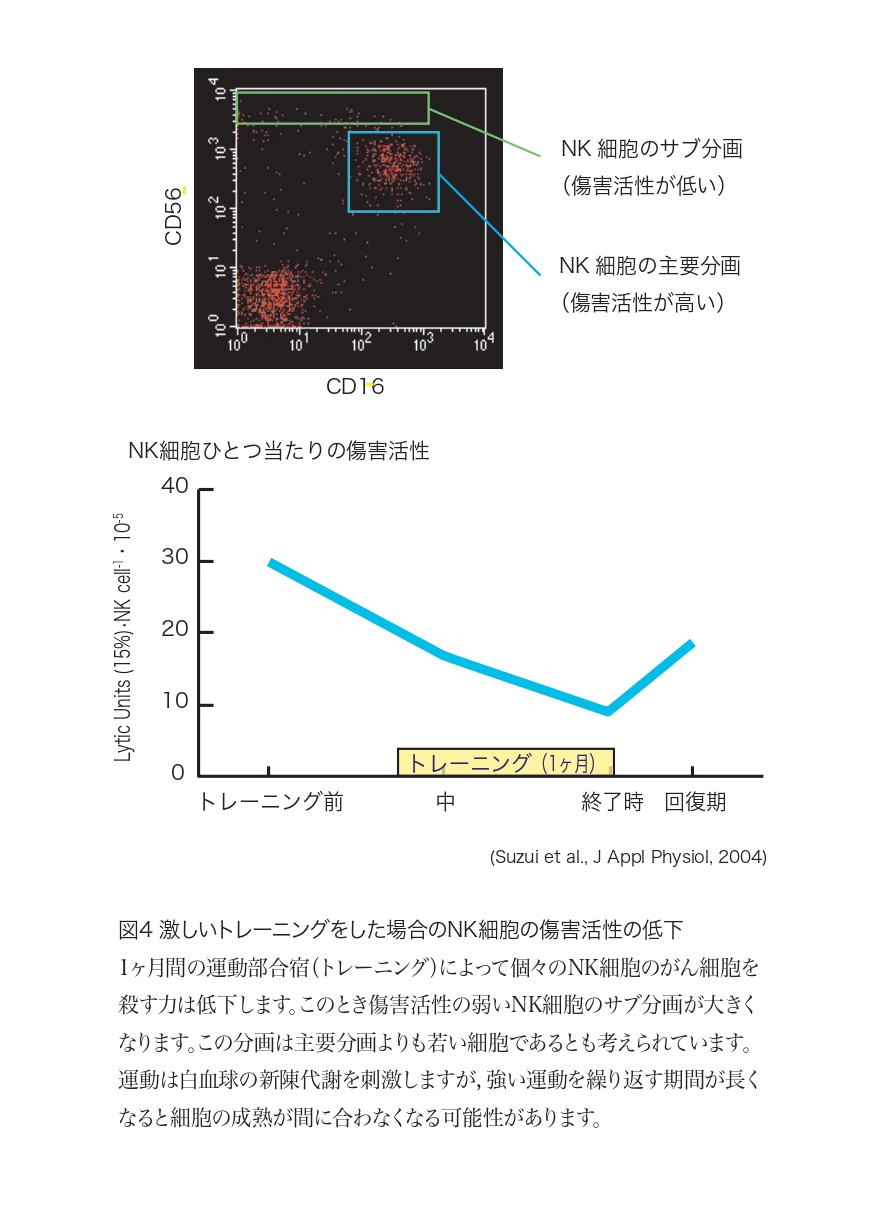Details of the Initiative
Exercise is one of the three major factors of health promotion along with nutrition and rest. Exercise also affects immune function, but can it prevent being infected by COVID-19? Human immune function is affected in various ways. While stress weakens immunity, exercise has a positive effect. But it’s not that the more you exercise, the more immune you acquire. If you do strenuous exercise repeatedly for a long time, such as in a training camp for athletes, your body becomes tired and white blood cells, which are the main players of immunity, become weakened. Although there is no evidence yet that exercise is effective against certain pathogens, such as SARS-CoV-2, improving the turnover of white blood cells (replacing old with new cells) with moderate exercise can help optimize immunity. The feeling of exhilaration after exercise can also help relieve the sense of stagnation arising from staying at home. Many people have seen a decrease in their physical activity by staying at home, whereas others have become more active joggers and walkers. When the weather is good, why don’t you go out and exercise while being careful about infection prevention?





